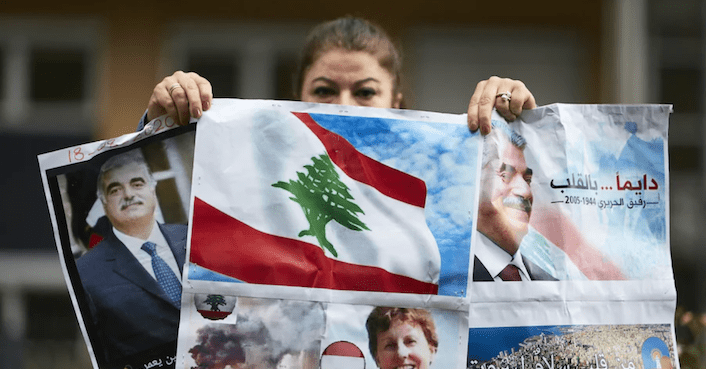Details about the still-active hit squad were provided by current and former security officials from the United States and three European and Middle Eastern countries who spoke on the condition of anonymity to discuss sensitive intelligence about the assassination and its aftermath.
The revelations come a week after a U.N.-backed international tribunal ended its 11-year investigation of the murder with a guilty verdict for Salim Jamil Ayyash, a 56-year-old Hezbollah operative and accused co-conspirator in the assassination. But the panel found no conclusive evidence linking Hezbollah’s leadership to Hariri’s killing.
Intercepted communications and other evidence not included in the tribunal’s public proceedings confirm the existence of an assassinations unit that has been behind a series of deadly car bombings targeting Lebanese military and political leaders and journalists over at least a decade, the officials said. Two former U.S. officials said intelligence assessments were privately shared with tribunal members, though the material could not be used in public proceedings because of the risk of exposing confidential sources and intelligence-gathering methods.
Although the hit squad’s makeup changed, a common thread was the participation of Ayyash, one of four indicted co-conspirators in the Hariri case and later a commander of Unit 121, the officials said.
Ayyash, whose whereabouts are not publicly known, was convicted in absentia Aug. 18 by the Special Tribunal for Lebanon, the Dutch-based international court established to render justice in the prime minister’s killing. Three other named suspects were found not guilty by the panel, whose members said in announcing the verdicts that they had not been able to find conclusive proof that the killing had been ordered by Hezbollah’s leaders.
Hezbollah has denied responsibility for Hariri’s death. Attempts to reach Hezbollah’s media office for comment were not immediately successful.
Despite the tribunal’s mixed verdict, current and former officials said the existence of the assassination team further undercuts speculation that Hariri died at the hands of rogue operatives who acted without authorization from Hezbollah’s top leadership.
“There is no question” about Hezbollah’s control over the hit squad, said a former senior U.S. national security official involved in intelligence collection efforts following Hariri’s death. “Hezbollah is an extremely disciplined organization.”
The previously unknown assassinations team has been linked to murders of political and military figures, all under Hezbollah’s direction, according to officials with access to highly sensitive intelligence about the militant group and its operations.
“It’s a highly secretive unit with dozens of operatives, totally disconnected from anything else, taking direct orders from [Hezbollah leader] Hasan Nasrallah,” said one of the officials, describing intelligence findings shared by U.S.-allied countries in the years since the assassination.
Among the small cadre of Hezbollah leaders previously authorizing the killings was Mustafa Badreddine, a Hezbollah military commander who was indicted by the tribunal as one of the alleged planners of Hariri’s assassination, the security official said. Badreddine was killed in Syria in 2016, and indictments naming him as a suspect were dropped.
The official identified four of Unit 121’s alleged victims as Wissam Eid, a Lebanese investigator of the Hariri killing; Wissam al-Hassan, a Lebanese army brigadier general and Hariri security chief; François al-Hajj, a Lebanese major general; and Mohamad Chatah, an economist and diplomat. All were killed by car bombs in attacks between 2007 and 2013.
Lebanese Maj. Gen. Ashraf Rifi, a former general director of the Lebanese Internal Security Forces, confirmed in an interview the existence of a “group within Hezbollah responsible for operations and assassinations,” including the Hariri killing and the more recent car bombings targeting other leaders.
“Ayyash was part of that circle,” Rifi said.
Hezbollah specialists in the United States have long believed that the group’s leaders routinely use targeted killings to eliminate rivals and perceived foes. The group has highly experienced bombmakers and an intricate command structure that is designed to insulate top officials from blame, said Matthew Levitt, a former counterterrorism analyst for the FBI and Treasury Department and author of a book on Hezbollah’s terrorist operations.
“Hezbollah has dedicated, specialized units for unique assignments, some of them time-limited and specific and others related to a particular skill set or type of assignment,” Levitt said. “Hezbollah’s political assassinations unit is a case in point.”
Several current and former officials and Hezbollah analysts expressed fear that the group’s leaders may feel emboldened to carry out new attacks, targeting political leaders and perceived adversaries in Lebanon and perhaps beyond.
The impulse to silence the group’s Lebanese critics is probably stronger now amid the political turmoil following the massive warehouse explosion in Beirut’s harbor that killed nearly 200 people and destroyed scores of buildings along the city’s bustling seaport, the analysts said. There are no known links between Hezbollah and the detonation of a huge cache of ammonium nitrate stored in a harbor warehouse, but the group’s leaders have been targeted by numerous public demonstrations in the weeks since the Aug. 4 blast.
“Anyone who tries to implicate Hezbollah in the explosion will have a target on his back,” said Robert Baer, a former CIA case officer in the Middle East who spent part of his career tracking Hezbollah’s rise in Lebanon. “They’re very smart, and they know who their enemies are.”

